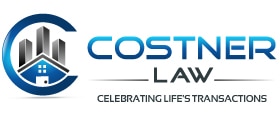
Working for a real estate lawyer one summer during college set Josh Costner on his career path. He began his firm in Charlotte, North Carolina in 2009, specializing in legal services for real estate development, commercial real estate, estate planning, and business law. Today, Costner Law has offices spread across both Carolinas – that’s rapid growth! Clearly, Josh Costner doesn’t do things small. But by managing growth, Josh has created a business that remains committed to doing things the right way for the client…every time.
The model for growth
Costner Law continues to grow by forming strong relationships with clients that lead to repeat business and referrals. Costner lawyers are masters at adaptability because every transaction is different. Anyone in real estate knows that a transaction is more than setting a closing date and time. Deals change, then change again, up to the last minute. The legal team needs the skill and tenacity to be flexible and remain focused on the best outcome for the client.
A non-traditional law firm
One of the ways Costner Law continues to set itself apart is with flexibility of time and location. After hours or meeting at a client’s location is just another day ‘in’ the office for them. The firm culture and attitude is proactive and ‘get it done.’
This positive firm culture that benefits clients also benefits the employees and community at large. Costner lawyers join together to give back to the community throughout the year. In 2016, just prior to Thanksgiving, the firm donated a trunk full of canned goods and $3,500 for needy elementary school children to the local backpack ministry at Providence Baptist Church. How did they raise the money? With a kickball tournament, of course! The tournament engaged employees and clients alike through a little friendly competition, all while raising funds for needy children.
Challenges of growth
Being on the Charlotte Business Journal’s Fast 50 list for five years in a row and #407 on the 2015 Inc. 5000 list are exceptional accomplishments. And with such success, high growth in a relatively short period of time creates challenges. Costner Law found that while they were doing an excellent job for clients, they needed a way to manage growth and maintain balance because real estate is always cyclical. Josh Costner says, “We knew we were doing well, but we didn’t have a true picture of the business. We had an in-house bookkeeper, and I knew we needed higher level financial help, but wasn’t sure what that would look like. We considered bringing on a full-time senior-level accountant, but it didn’t seem to make a lot of sense for the size of our company.”
Financial tools provide insight
Josh is part of a group of business owners that met every month, and several of them worked with fractional CFOs. One of the owners recommended Lucrum Consulting, and it seemed like a good fit. Josh works with Kurt Dyck of Lucrum to put systems in place to manage growth for profitability, keep cash flow strong, and get a clear picture of business opportunities. Going forward, the firm relies on a plan and tracks data for decision making. Here’s how it works:
- Look at data to evaluate the performance/success of each location and what services are the biggest drivers of profitability. It’s easier to make smarter decisions and avoids ‘knee-jerk’ reaction to a single month – whether positive or negative.
- Set up the chart of accounts to make it easier to see key performance indicators (KPIs). A dashboard and metrics reflect the aspects of the business that affect profitability. (To learn more about Financial Dashboards, view Lucrum’s video on the topic by clicking here.)
- Establish forecasting and budgeting. An understanding of when to expect the business to rise and fall keeps perspective with regard to adding staff or investing in other resources. Knowing where the business is headed based on past performance and current conditions alleviate the need to make decisions month by month. It’s balanced.
- Make a plan. Defining tangible initiatives to reach goals keeps the business on track.
The bottom line result is financial clarity. Costner Law relies on yearly forecasts updated each month and is able to analyze what areas/lines of business are most profitable. It’s less stressful and easier in the long run because they have insight about what to expect. So what’s next for the super-star law firm? They plan to keep a priority on customer service, armed with information that will probably keep them on the Fast 50 and Inc. 5000 lists for a very long time.



